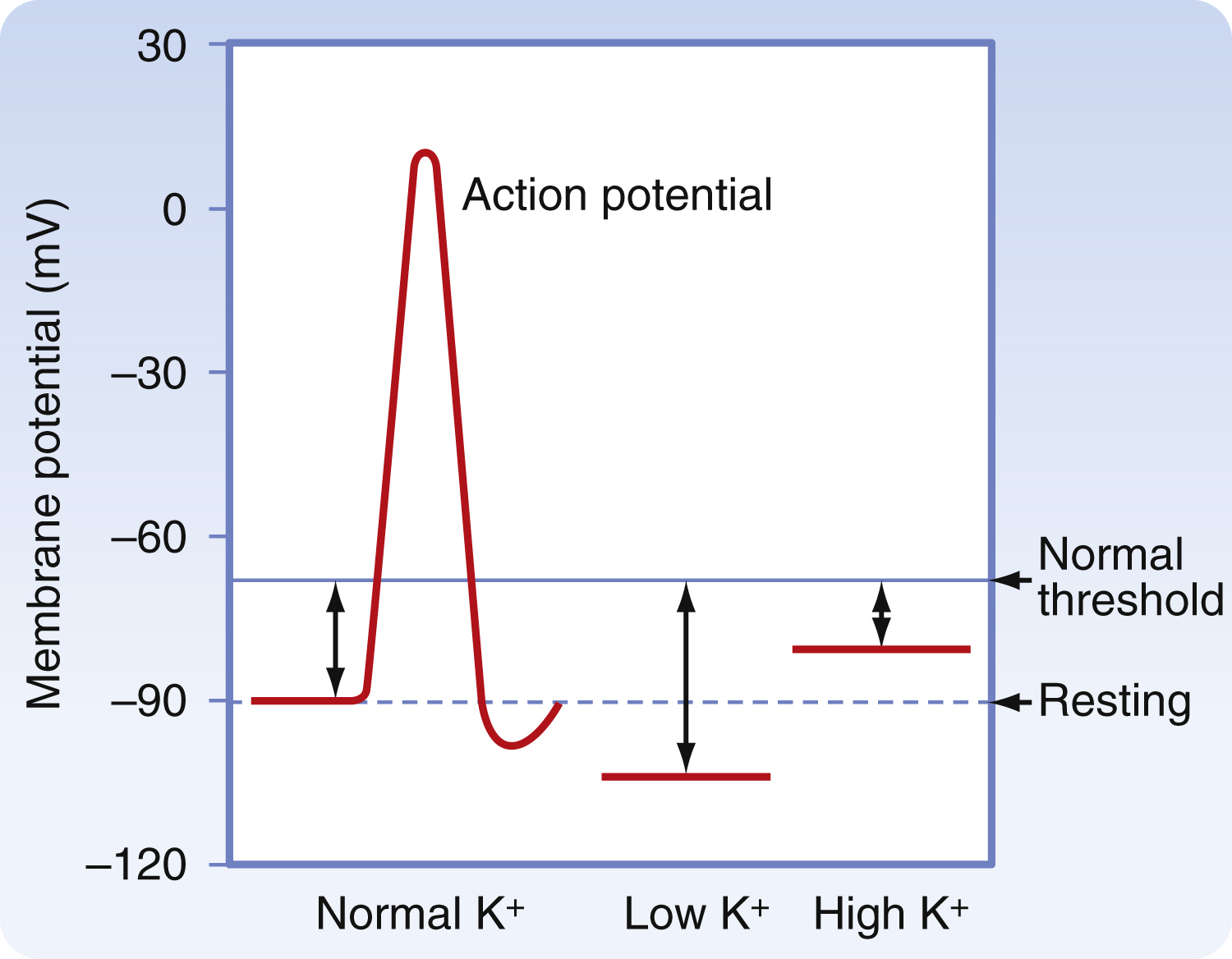hyperkalemia /hī′pərkəlē″mē·ə/ [Gk, hyper + L, kalium, potassium; Gk, haima, blood] , greater-than-normal amounts of potassium in the blood. This condition is seen frequently in acute renal failure, massive trauma, major burns, and Addison’s disease. Early signs are nausea, diarrhea, and muscle weakness. As potassium levels increase, marked cardiac changes are observed in the electrocardiogram due to changes in membrane potential. Treatment of severe hyperkalemia includes oral administration of Kayexalate (sodium polystyrene sulfonate) and IV administration of sodium bicarbonate, calcium salts, and dextrose. Hemodialysis is used if these measures fail. Also spelled hyperkalaemia.

